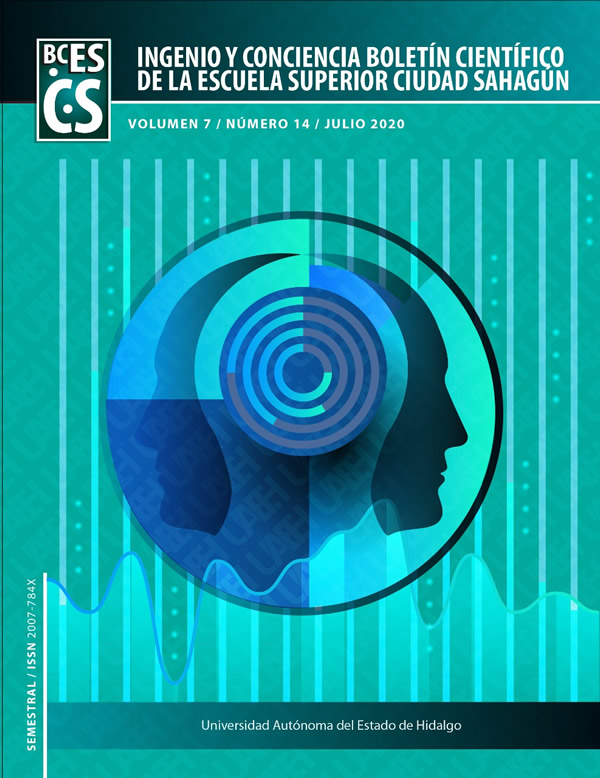The Millenial-Responsible Segment, as an Ideal Market Goal for Mayan Tourist Enterprises
Abstract
The increasing purchasing power of the population sector denominated: Millenial, its capacity of influence, the tendency of its growth and styles of purchase; make this group of people, a segment of market pursued by the companies of products and services. This segment of the market, besides its high degree of interaction with electronic devices, shows interest in tourism products oriented towards sustainability. The plans and visions of tourism, both internationally and in Mexico, speak of the search for a new model of tourism development in line with market trends and also with the need for a more equitable wealth distribution system. The proposed diversification guides the tourism development of the state of Quintana Roo toward the exploration of ecotourism and rural alternatives in the region; Based on the existence of populations of Mayan origin. This work demonstrates the compatibility of destinations such as Maya Ka'án (launched as the new tourism brand of Quintana Roo) with the segment of the millenial-responsible traveler, since its attractions were conceptualized to receive a responsible tourist, lover of nature and culture that requires defining the opportunity of supply and the relationship between communities and the new profiles of travelers, including the responsible millennia
Downloads
References
Amigos de Sian Ka´an. (2014). Diversificación de la Oferta Turística de la Riviera Maya en Base al Aprovechamiento Sustentable de los Atractivos de la Reserva de la Biosfera en Sian Ka’an. México.
Casal, J. y Mateu, E. (2003). Tipos de muestreo, Rev. Epidem. Medicina preventiva I. PP 3-7.
Center for Responsible Travel [CREST]. (2016) The Case for Responsible Travel: Trends & Statistics 2016. Recuperado desde http://www.responsibletravel.org/whatWeDo/The_Case_for_Responsible_Travel_2016_Final_UPDATED.pdf
Cohen, L., Manion, L., y Morrison, K. (2003). Research methods in education (5a Ed.). London: RoutledgeFalmer Conde Pérez, E. y Covarrubias, R. (2006) La gestión de marketing y la orientación al mercado de hoteles. Recuperado desde http://www.eumed.net/libros-gratis/2013b/1355/index.htm.
Chung, J., Buhalis, D. (2008). Information Technology & Tourism, Volume 10, (15). No. 4, 2008, pp. 267-281.
Ferrer, A. (2010). Millenials, la generación del siglo XXI. Nueva Revista N° 130. Seminario: El trabajo y los jóvenes. Centro de Estudios en Economía y Cultura (UCA). Recuperado de http://www.uca.edu.ar/uca/common/grupo83/files/Millennials_-_La_Generacion_Millenial_en_el_Siglo_XXI_-_2010.pdf
Ferreyra, V. (2014) Maya Ka´an, donde la tierra late. Ppt. V Congreso de Turismo, Universidad Tecnológica de Cancún. México.
Frost y Sullivan, y Amadeus (2014). Future Traveller Tribes 2030: building a more rewarding journey. Recuperado desde www.frost.com
Hiriart, C. (2010). Panorama Mundial del Turismo Cultural. Cuadernos de Patrimonio cultural. México.
Instituto Mexicano de Ejecutivos de Finanzas (IMEF, 2013). Por primera vez conviven cuatro generaciones en la empresa. Recuperado de http://imef.org.mx/Descargascomites/CapitalHumano/2013/sept2013ch.pdf
Kotler, P. y Armstrong, G. (2012). Marketing. México: Pearson Educación.
Kotler, P. y Keller, K. (2012), Dirección de Marketing, México: Pearson.
Mediano, L. (2002). Incidencia del nuevo consumidor turístico en la estrategia de marketing. Revista de Dirección y Administración de Empresas. Número 10, diciembre 2002, 99-117.
Moncada, P., González, N. y Valtierra, A. (2014a). Aktun Jaaleb, el ecoturismo como opción de desarrollo sustentable en una comunidad maya en México. Unicaribe. Cancún, Quintana Roo.
Moncada, P., González, N. y Valtierra, A. (2014b). El turismo como opción de desarrollo sustentable en una comunidad maya en México. Congreso de Investigación Turística Aplicada 2014. Guadalajara, México.
Moncada, P. (2014). Conversación directa, entrevistado en la Universidad del caribe, Octubre 2014.
Pérez-Condes, M. y Campillo, C. (2016). Influencer engagement: una estrategia de comunicación que conecta con la generación Millennial. Universidad de Alicante. Facultad de ciencias económicas y empresariales. España.
Sánchez, L., Megías, I., & Rodríguez, E. (2004). Jóvenes y publicidad. Valores en la comunicación publicitaria para jóvenes.
Scolari, C. (2013). Narrativas transmedia. Cuando todos los medios cuentan. Deusto 23-26.
SNV Netherlands Development Organisation. (2009) The market for responsible tourism products: with especial focus in Latina America and Nepal. Recuperado desde www.responsibletravel.org
US Chamber Foundation (S/A). La Generación Millenial (The Millenial Generation). Recuperado de https://www.uschamberfoundation.org/sites/default/files/article/foundation/MillennialGeneration.pdf











